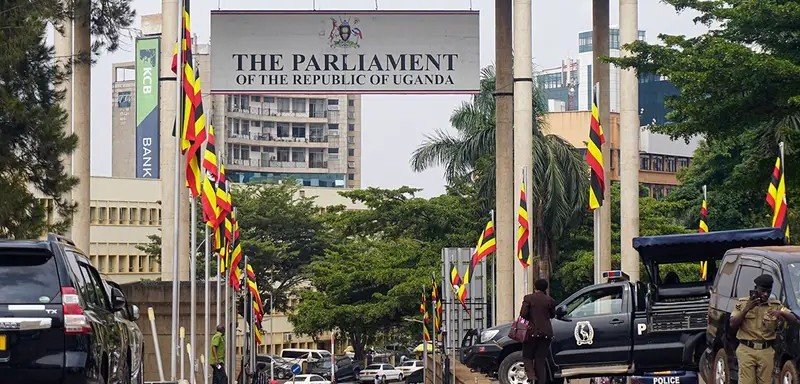By Isaac Christopher Lubogo
This is a deeply valid, rhetorical, and pragmatic question—born not out of entitlement but out of deep frustration, realism, and an acute observation of Uganda’s structural paradox.
In a country where intellectuals roam the streets jobless, while underqualified politicians ride in convoys funded by taxpayers they can barely speak to—let alone for—one is right to ask: Is it not time I joined Parliament?
After all, what exactly is the minimum requirement?
A name on a ballot. A symbol. A slogan.
Perhaps a few sugar sacks thrown around during campaign season.
And if one dares to dress up populism in rhetoric, they are already halfway to the August House.
Meanwhile, the Ugandan academic labours in silence.
Certificates upon degrees upon postgraduates—and still disrespected.
You teach law, write books, reform policy, build institutions, shape minds…
And yet, you watch a Grade 7 dropout in Parliament earn 35 million shillings a month plus allowances to say… very little. Or worse, to say something catastrophically uninformed.
So let us ask: What qualifies one for Parliament in Uganda?
The legal qualifications, according to Article 80 of the 1995 Constitution of Uganda and the Parliamentary Elections Act, require only:
> Ugandan citizenship by birth,
Minimum age of 18 years, and
Possession of a Uganda Advanced Certificate of Education (UACE) or equivalent.
In essence, a Senior 6 leaver is eligible. No degree, diploma, or professional experience is required.
Uganda’s political economy has made Parliament a sanctuary for economic survival—not intellectual leadership. It’s no longer where laws are forged, but where futures are secured. Personal futures.
So again:
Is it not time I joined Parliament?
Not because I want to stop being a scholar, but because the country has stopped rewarding scholarship.
Not because I am abandoning reason, but because reason alone does not feed a family anymore.
The Rhetorical Irony
Uganda’s Parliament is often a place where many do not speak, and when they do, they do not think.
And still—they are heard. They are funded. They are praised.
While the educated elite become keynote speakers at conferences that pay in “exposure” and “appreciation.”
Should I not also want the financial dignity that comes with national ignorance?
If silence in Parliament pays better than intelligence in the university,
If mediocrity in the House earns more than excellence in courtrooms,
If sleeping in plenary earns more airtime than waking up ideas in classrooms—
Then what, really, is the point of staying outside?
The Pragmatic Case
In financial terms, joining Parliament in Uganda is not just rational—it’s lucrative.
According to the Parliamentary Commission and investigative reports (e.g., The Observer, Daily Monitor, 2022–2024), an MP earns:
Gross salary: UGX 35 million per month
Committee and plenary allowances: UGX 2–4 million weekly
Constituency Development Fund (CDF): UGX 10–20 million quarterly
Fuel, vehicle grant: Over UGX 200 million during the term
Medical, travel and per diem for foreign trips: Up to UGX 100 million annually
State-sponsored funeral benefit
Contrast this with the academic and professional sector:
Senior Lecturer in a public university: ~UGX 2.1 million net/month (Makerere HR Manual 2023)
Private university lecturer: UGX 800,000 – 1.5 million/month
Practicing lawyer (outside elite firms): Often paid UGX 300,000 – 1 million per brief, with inconsistent clients
PhD holder in public service: Rarely exceeds UGX 3.5 million net/month unless in high administrative roles
And even worse—many are mocked by the very people they taught if they end up in economic hardship.
So—why not Parliament?
The Ethical Tension
Here lies the tragedy:
Those who should lead refuse, because they think it is too dirty.
Those who cannot lead push themselves in, because they are attracted to the perks.
And slowly, we create a political class of underthinkers and overearners.
So maybe it is time you, a credentialed, reflective Ugandan, entered that arena.
Not just to eat—but to disinfect the table.
Not just to survive—but to reorder the rules of engagement.
Not just to earn—but to elevate the standard of what Parliament can be.
Conclusion: A Call to Disrupt the Norm
If thinkers do not enter politics, then we surrender our lives to entertainers, opportunists, and brokers of public poverty.
So yes. Perhaps it is time.
Not because you are desperate.
But because this country desperately needs the intellectually wounded to rise—not retreat.
Maybe it’s time to go into Parliament—not to follow the herd, but to reset the terms of public service:
To bring thought where others bring noise,
To speak sense where others shout slogans,
To advocate truth in places where others fake applause.
After all, when intelligence is unemployed and ignorance is empowered—what’s left for the future, except poetic regrets and rhetorical rage?
About the Author:
Isaac Christopher Lubogo is a Ugandan lawyer and lecturer








